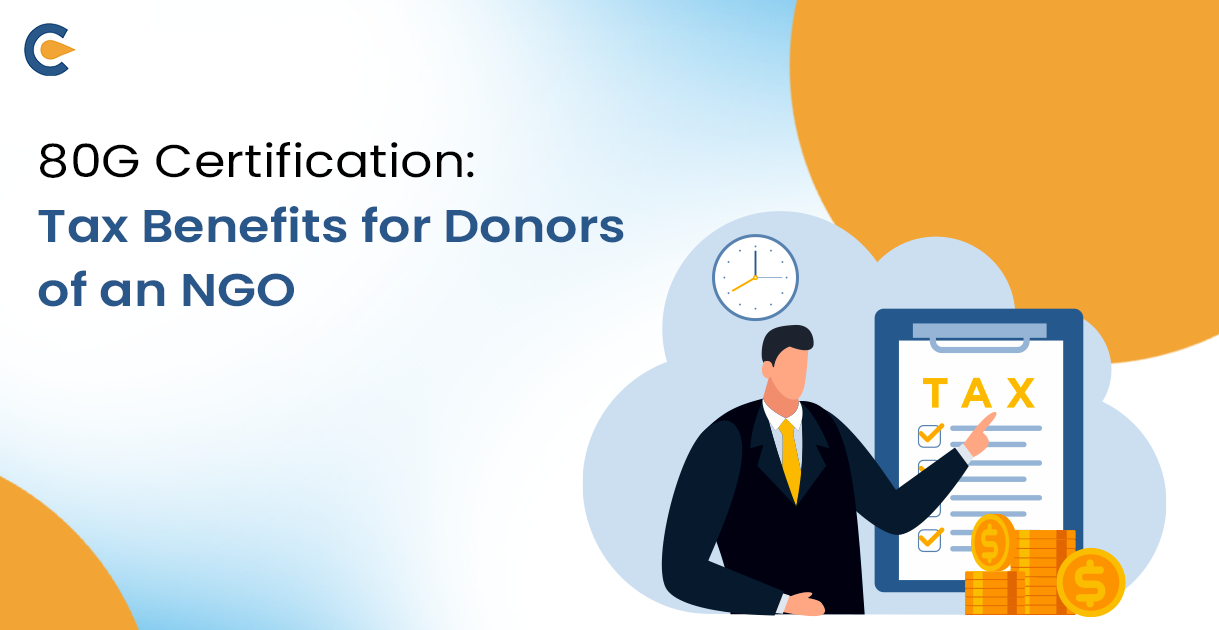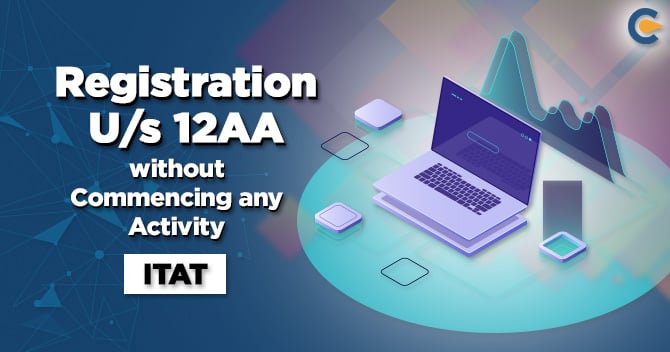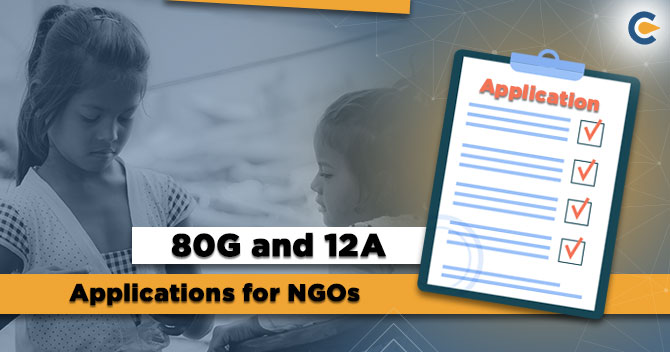An NGO, Trust or Charitable Organization is a privately owned or government-affiliated entity that prioritizes non-monetary motives, such as social welfare, women empowerment, education, equal opportunity for underprivileged children, healthcare and other charitable purposes over financial gain. They carry out their activities in the fields of education, women empowerment, science and technology, arts, religious customaries, food and essential distributions, rehabilitation and reformation, etc. An NGO or Trust can be formed by an individual, group, individuals, community, volunteers, activists or social workers. NGOs can also be formed as charitable trusts in India, which are governed by the Trusts Act of 1882. Trusts are privately owned and held financial instruments that are usually meant for the benefit of a particular individual, organization or cause. These organizations are not part of the Government structure and instead have a separate legal status under the Societies Registration Act, 1860. Based on the regulating statute or law or regulatory authority, NGOs and charitable organizations in India can be subdivided into several categories, such as – Registered Societies, Trusts, Cooperatives, Nidhi Companies, Section 8 Companies, Self-Regulatory Bodies, etc. These not-for-profit organizations enjoy sizeable monetary benefits for the governments and are eligible for tax rebates and concessions on contributions, investments, and donations, making them a lucrative business choice for several entities and big corporations looking to maximize tax planning and avail tax exemption in NGO businesses.
Why incorporate a Trust or NGO?
Incorporating a trust or NGO is an excellent method to maximize tax savings and effectively conduct tax planning for any company or organization. Additionally, the Government allows tax benefits for donors of an NGO. Hence, individual donors and organizations can also ensure tax planning by making contributions to the functions of an NGO or Trust. This ensures a dual-benefit arrangement for both the NGOs and the bodies that make donations to an NGO. It is necessary to first determine the kind of company structure or entity that will be chosen to establish a non-profit organization in India before applying for an 80G Certification. Considering the organization’s goal and purpose, the best entity must be chosen from among the possibilities of Society, Trust, Cooperative Society, or Section 8 Company.
The company’s charter documents, including the trust deed, MOA, and AOA, are selected after the NGO’s name and organizational structure have been decided upon. When it comes to a trust, it is important to identify the Trustee and the Beneficiary and to write and properly register all pertinent paperwork. Following the submission of the paperwork to the local registration or Registrar of Companies. The Regulatory Authority and Registrar review and scrutinize the documents following the submission of the necessary paperwork and payment of the required fees. The application is finished, and a certificate of incorporation of an NGO, Trust, or Society is given after verification.
How NGOs and Trusts can Avail Donations?
By completing the necessary paperwork and registering, an NGO can receive an exemption from income tax; however, the donors receive no advantage from this registration. Certain provisions of the Income Tax Act of 1961 provide tax incentives to “donors”. All NGOs ought to take advantage of these provisions in order to avail funding and donations for external investors and avail tax benefits for donors of an NGO. Among these sections is Section 80G. A person or organization donating to an NGO will receive a deduction of 50%from their taxable income if the NGO registers under section 80G. An NGO or trust is only eligible for government financing if it registers under 12A and 80G. An NGO that has been registered and has not opted for a tax benefit scheme can also apply for 80G certification.
How to get Tax Benefits for Donors of an NGO?
Here is how to avail tax benefits for donors of an NGO The donations or contributions must be in the form of money and not products or services in order to be eligible for a deduction under Section 80G and subsequently avail Tax Benefits for Donors of an NGO. Only donations made by cash, cheque, or electronic transfer are eligible for the deduction.
Also, to avail tax benefits for donors of an NGO and for a grant of 80G certificate, the following conditions are required to be satisfied by the NGO/ Trust. –
- The NGO must not have a business income or income from any commercial activity, which If not exempted. In case the NGO has such an income source, it shall maintain separate books of accounts and make regular entries to them.
- The NGO must not have any objective or goals mentioned in the MOA, which indicates that the NGO shall utilize the proceeds of the income or donations received towards any monetary or commercial activity.
- The NGO is not working to further the interest of any private organizations, individuals or illegal activity such as drugs, trafficking, arms dealing, smuggling, etc.
- The NGO has been registered under a valid law such as Trusts Act, 1882, the Companies Act, 1956, or Societies Registration Act, 1862.
Types of Donations
Under Section 80G of the Income Tax Act, 1961, there are two categories of donations that receive exemption from the Government upon being made towards acause – 100% exempted and 50% exempted. For the purpose of availing exemption on Donations for getting tax benefits for donors of an NGO, the donor must have the following documents with him/her at the time of making a contribution – Identification Details- AADHAR, PAN, Voter ID Card, etc. of the donor, amount of contribution, address of the donee, 80G certificate and the amount eligible for deduction.
Donations that receive 100% Exemption from the Government-
- National Defence Fund set up by the Central Government
- PM CARES Fund
- National Cultural Fund
- National Sports Fund
- National
- Foundation for Communal Harmony
- Fund set up for assistance by a state government for medical relief to the poor
- National Illness Assistance Fund
- National
- Trust for Cerebral Palsy, Welfare of Persons with Autism, Mental Retardation, and Multiple Disabilities
- Fund for Technology Development and Application
- National Children’s Fund
- Chief Minister’s Relief Fund of Maharashtra
- State Blood Transfusion Council or National Blood Transfusion Council
- Lieutenant Governor’s Relief Fund or Chief Minister’s Relief Fund concerned to any State or Union Territory
- The Indian Naval Benevolent Fund or the Air Force Central Welfare Fund, or the Army Central Welfare Fund,
- or Andhra Pradesh Chief Minister’s Cyclone Relief Fund, 1996
- Chief Minister’s Earthquake Relief Fund, Maharashtra
- Any fund set up by the State Government of Gujarat exclusively for providing relief to the victims of the earthquake in Gujarat
- Any trust, institution or fund to which Section 80G(5C) applies for providing relief to the victims of the earthquake in Gujarat (contribution made between January 26, 2001, and September 30, 2001)
Donations that receive a 50% Exemption from the Government
- Prime Minister’s Drought Relief Fund
- Jawaharlal Nehru Memorial Fund
- Indira Gandhi Memorial Trust
- Rajiv Gandhi Foundation
Understanding 80G Certification
There is a maximum amount that the donor may get as a benefit. The amount in excess of 10% of Gross Total Earnings shall not be deductible under Section 80G if the reduction to a charitable organization is greater than 10% of the Gross Total amount of income calculated under the Act Gas lowered by earnings on which income is not payable under any arrangement of this Act and by any quantity with respect to which the assessee is entitled to a reduction under any other arrangement of this Chapter. In order to determine the deductible amount under section 80G, half of the total amount of contributions must be found before calculating the assesse’s overall income.
Under tax benefits for donors of an NGO, individuals, as per section 80G, are eligible for a 50% reduction from their taxable income. Sometimes confusion arises below, believing that section 80G offers a 50% tax advantage when, in fact, it does not. As a result, 50% of the donation can be subtracted from gross income, and tax is calculated as a result. Donors under section 80G are eligible for a 50% reduction from their taxable income. Sometimes confusion arises below, believing that section 80G offers a 50% tax advantage when, in fact, it does not. As a result, 50% of the donation can be subtracted from gross income, and tax is calculated.
Importance of 80G Certification
80G registration is a very important fiscal compliance benefit to both the NGO and the donor. It has several benefits for the company, such as –
Tax Benefits for Donors of an NGO
The donors of an NGO receive tax exemption for up to 100% of the contribution made to these organizations as per the 80G registration scheme and it provides tax benefits for donors of an NGO.
Funding from the Government
Section 80G registration and registration unders. 12A of the Income Tax makes an NGO or charitable organization eligible for funding or grants from the Government. As a result, 80G certifications, trusts, and NGO sat test to the validity and legitimacy of the organization.
Reliability of the organization
80G certification adds validity and genuineness to the NGO since it certifies that the organization complies with all government tax regulations. Hence, it naturally increases the donation-receiving capacity of the NGO by increasing its credibility and reliability among donors.
Who is Eligible for 80G Registration?
An NGO or charitable organization must, immediately after its incorporation, apply for an 80G certification in order to avail Tax Benefits for donors of an NGO. An NGO must fulfil the following requirements –
- It is not allowed to have any revenue from a business.
- It ought to be a recognized society or, a charity trust or a Company under applicable laws and regulations.
- Additionally, these organizations ought to only use their resources and earnings for charitable endeavours.
- In addition, they need to keep a consistent book of accounts for their receipts and outlays.
- Any entity overseeing the organization, including the trustees, shall not be complicit in taking unfair advantage of these funds.
- The NGO or its peopleshouldn’t be employed to advance the interests of any specific caste or religion.
Document Required to make an application for 80G certification –
Here are the documents required to make an application for 80G Certification and obtain tax benefits for donors of an NGO:
- MOA and Certificate of Incorporation issued by the ROC for Section 8 companies, Societies and a Trust Deed in case of a Trust
- Form 10G
- No objection certificate and Rent/Lease Agreement from the property’s owner where the registered office of the institution is situated
- A copy of the PAN and GSTIN of the NGO
- Utility Bills copy such as water bills, Electricity bills, or House Tax Receipt
- List of the donors along with their IDs, address, PAN and contribution amount
- The documents related to the company financials, such as Income Tax returns, balance sheets, financial statements and audit reports
- The list of the welfare and social-service activities being carried out in the last three years
- A List of the Board of Trustees or directors in case of society or Section 8 Company.
Conclusion
Setting up an NGO or charitable organizations requires mandatory compliance with Section 80G of the Income Tax Act. Section 80G ensures that the organization is Tax Benefits for Donors of an NGO. 80G certification is not only open for government funding for an NGO but also ensures that the NGO or charitable organization has credibility and repute among private donors. It also helps an NGO to obtain regulatory approvals and licenses comparatively easily.
At Corpbiz, we are committed to helping you in your entrepreneurial success and endeavour to provide you with the best possible advisory support in setting up an NGO or Charitable Organization for your company. Our dedicated tax team would seamlessly help you obtain 80G certification and formulate the best policy possible for donations to an NGO. Our specialized services ensure that you remain ahead, keeping track of all major compliances and regulatory requirements to be accorded the status of a tax-exempted NGO.
Frequently Asked Questions (FAQs)
A non-government organisation (NGO) is a privately owned or government-affiliated entity that does not have the motive to earn monetary profits through its business but promotes social welfare, empowerment, and charitable purpose. They carry out their activities in the fields of education, women empowerment, science and technology, arts, religious customaries, food and essential distributions, rehabilitation and reformation, etc. It can be formed by an individual, group, individuals, community, volunteers, activists or social workers.
An NGO or charitable organisation can be set up either as a Section 8 company, charitable trust, or cooperative society. Such not-for-profit organisations are eligible to receive exemption from tax under sections 11, 12, and 80G of the Income Tax Act, 1961.
In order to avail tax rebates and exemptions for Donations to an NGO, an NGO must have a valid 80G or 12A registration under the Income Tax Act,1961 for availing tax benefits for donors of an NGO.
Donations made to State funds such as PM CARES, National, National Defence Fund, Sports Fund, Cultural Fund, Flood Relief Fund, Children and Old-Age Fund, etc. are exempted by the Government. Under section 80G of the Income Tax Act
The documents required for getting tax benefits for donors of an NGO are Form 10G, Financial statement for the past three consecutive years, PAN card and GSTIN number of the NGO, Certificate of Incorporation of the company, MOA, AOA and Trust Deed, details of the activities performed by the NGO, a certified copy of the agreement which established the NGO along with the Digital Signature Certificate of the directors/ trustees.
Donors under section 80G are eligible for a 50% reduction from their taxable income. Sometimes confusion arises below, believing that section 80G offers a 50% tax advantage when, in fact, it does not. As a result, 50% of the donation can be subtracted from gross income, and tax is calculated on the remaining amount.
The Commissioner of Income Tax or the Principal Commissioner is the statutory authority that grants 80G Registration certificates to NGOs or charitable organisations.
A certificate of Tax exemption for an NGO remains valid for a period of 5 years from the date of issuance, while a provisional certificate remains valid for three years. It is required to be renewed 12 months before the date of expiry.
The NGO or charitable trust can use the funds received for religious or charitable purposes without any application of tax by the Government.
The income earned by such an organisation is exempted from income tax by the Income Tax Department.
NGOs are entitled to receive donations and contributions from both domestic and international sources and donors. However, the same shall be within the purview of the Foreign Exchange Management Act, 1999.
The NGO or charitable organisations receive credibility and recognition as the 80G registration makes the originations eligible for a variety of grants, Government aid, and funding.
No, Only those trusts that are formed for charitable defined in the Income Tax Act are eligible to avail tax exemption under sections 11 and 12 and hence qualify for this registration.
In order to make an application for Tax benefits for donor of an NGO, the applicant is required to make a request application with the Principal Commissioner or Commissioner of Income Tax, along with the required documents and forms. The Commissioner of Income Tax would scrutinise the application made and satisfy itself with all the details and disclosures. If the authority is satisfied, it issues the applicant with approval to proceed with the application and obtain an 80G certificate.
Read our Article: What Are The Benefits Of 12A And 80G Registration?











